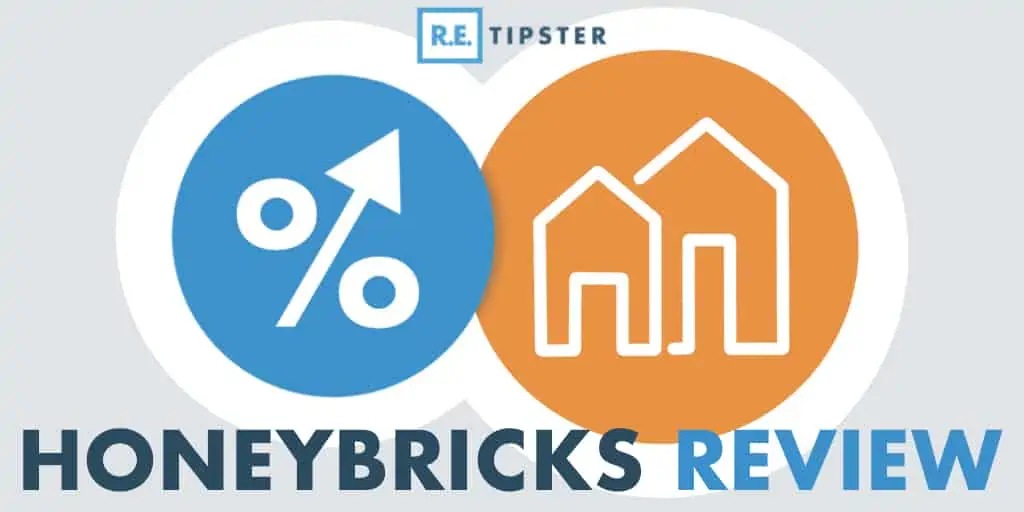
Similar to Crowdstreet, the crowdfunding platform HoneyBricks offers a marketplace for investing in real estate syndications.
But how does it compare to CrowdStreet and other real estate crowdfunding platforms? Does it live up to its promises of transparency? And does tokenized real estate investing work, anyway?
There’s a lot to like about HoneyBricks—but plenty of reasons for caution.
HoneyBricks Rating
Summary
HoneyBricks brings Web3 to real estate syndication investing, with blockchain-backed tokens for owning shares of commercial properties.
If that sounds unproven and risky, the technology is actually more proven than HoneyBricks itself. The platform launched in 2022, and to date only has only hosted a few properties for investing.
Still, the platform offers an intriguing premise, allowing investors to buy into syndications with just $1,000 and then buy and sells shares on a secondary market.
Pros
- Secondary Market & Liquidity
- Transparent Ownership
- Funding Flexibility
- Sponsor Screening
- Low Minimum Investment
- Open to International Investors
Cons
- Accredited Investors Only
- No Track Record
- Limited Information on Website
- Opaque Deal Fees & Waterfall
- Few Investment Offerings
What Is HoneyBricks?
HoneyBricks is an online marketplace for connecting real estate syndicators with financial investors. As a passive investor, you can browse commercial real estate investment opportunities and invest with a few clicks.
That is, if you’re an accredited investor or an international investor. Middle-class Americans need not apply.
HoneyBricks earns most of its money by charging fees to sponsors rather than you as the investor. That may sound great—until you realize that sponsors can turn around and recoup that money in their own fee structure. If you’ve ever invested in a real estate syndication, you know that sponsors can get extremely creative in structuring their fees.
The feature that sets HoneyBricks apart from the competition is how it tokenizes real estate investments. The upside for you as an investor is that it opens up a secondary market for buying and selling shares, which makes it a far more liquid way to invest in real estate syndications.
How HoneyBricks Works
After creating an account on HoneyBricks, you can view current and past investments. As of late March 2023, that includes six deals.
You can view the details of each deal, including the projected returns, the sponsor’s business plan, the property’s details, the minimum investment, and more. After connecting your bank account, you can invest with the click of a button and start collecting distributions. These typically go out quarterly, although each deal has its own distribution schedule.
When you invest, you receive a digital token based on blockchain technology. The token owns part of the company that owns the property itself, and the blockchain includes the ownership history. Blockchain-based investments suffered a confidence crisis in 2022 and 2023, between the collapse of several high-profile cryptocurrency exchanges and the so-called “crypto winter,” but that doesn’t make the underlying technology suspect.
Tokens represent a secure, fast, and inexpensive way to transfer fractional ownership in real estate. And the ability to sell tokens on HoneyBricks’ secondary market marks one of their greatest strengths.
Of course, safe ownership transfers don’t make the real estate investments themselves safe. Any investment can fall apart for any number of reasons, and real estate syndications are no exception. But HoneyBricks does put sponsors through a rigorous screening process, removing some risk. These sponsors aren’t likely to take your money and run off to Barbados, and in all likelihood, they have significant investing experience under their belts.
Pros of HoneyBricks
HoneyBricks comes with some unique selling points in addition to more common crowdfunding advantages. Here’s why it's worth a look.
Secondary Market and Liquidity
Most real estate syndications lock up your money with no option to withdraw money early. Full stop.
That gives plenty of passive investors pause, knowing they’re at the mercy of the property selling to get their money back. Syndications often take five to seven years to sell.
Because HoneyBricks creates digital tokens to store ownership stakes, it’s easy to buy and sell them on the HoneyBricks platform. Beware, though; all deals come with an initial hold period when owners can’t sell their shares.
Transparent Ownership
One upside of blockchain technology is the clear ownership history. You can tell who owns a token today and everyone who has owned it previously.
As confusing as “digital real estate token technology” sounds, it offers a clear and simple way to hold fractional ownership in properties.
Funding Flexibility
HoneyBricks considers itself a tech-forward company. In that vein, it accepts investments in not just cash ACH transfers but also credit cards and cryptocurrencies.
You can also opt to receive distributions either by traditional bank transfer or through a cryptocurrency wallet.
Comprehensive Sponsor Screening
HoneyBricks vets sponsors carefully before allowing them to raise money on the platform.
That screening process includes full background checks, track record reviews, and classification into one of four risk categories. Less than 1% of all deals submitted to HoneyBricks make it through screening to the platform. Read more about the HoneyBricks due diligence process for more details.
While this additional screening helps reduce your risk, it doesn’t absolve you of all responsibility. It’s your money on the line, so you need to do your own due diligence.
Low Potential Minimum Investment
The minimum investment varies by the deal set by the sponsor. That said, you can expect a much lower minimum investment than your typical $25,000 to $100,000 for a real estate syndication.
HoneyBricks requires a minimum price per token of $100, although sponsors can set the price higher. The deals available at the time of this writing have a token price of $1,000.
The relatively low minimum investment helps you diversify your real estate investments, spreading money among more projects.
Open to International Investors
Most real estate crowdfunding platforms in the U.S. only allow American investors to participate. That sets HoneyBricks apart for non-U.S. residents.
Cons of HoneyBricks
For all those upsides, you need to understand all of HoneyBricks’ downsides and risks as well.
Accredited Investors Only
Most American investors can’t access investments on HoneyBricks even if they want to, because they don’t meet the requirements of an accredited investor.
No Track Record on Website
Wondering how past deals on the HoneyBricks platform have performed?
I’d say “me too,” except HoneyBricks is so new that they have almost no track record to report.
Expect it to take years to compile a track record comparable to more established competitors like CrowdStreet and Fundrise.
Limited FAQ and Information on Website
For that matter, it’s hard to find other relevant information on its website.
I didn't find as many details as I'd like about the process of selling shares, for example. While HoneyBricks has expanded their Knowledge Base in recent months, so this issue appears to be improving. Just make sure you get answers to any lingering questions before investing.
Deal Fees and Waterfalls Not Clear
Even after creating an account and clicking on specific deals, it wasn’t clear what fees the sponsor charged. HoneyBricks also doesn't make it clear what the profit split was between the general partner and you as a limited partner.
I’m sure that information appears in the granular investment documents, which I could not access without verifying my status as an accredited investor. But sponsor fees and profit splits are crucial details that should appear front and center in the deal overview, not buried in legal documents.
And that says nothing of HoneyBricks’ 1% annual asset management fee to passive investors, which you must dig deep to find on its website.
Few Investment Offerings
At the time of this writing, HoneyBricks only offered two properties for investing. One other property appeared on the platform as sold out.
All crowdfunding platforms need to start somewhere. But I’d just as soon invest my money through more established platforms.
How HoneyBricks Compares
The closest competitor to HoneyBricks, CrowdStreet, blows them out of the water on transparency and track record. CrowdStreet is an established marketplace, unafraid to show off its past properties’ performance.
Even so, CrowdStreet requires a far higher minimum investment and doesn’t offer a secondary marketplace. See our full CrowdStreet review for more details.
EquityMultiple offers another option for commercial real estate investment. On the plus side, they provide a clear track record of success. But expect a higher minimum investment and no secondary market for selling shares.
As an alternative model for investing in commercial real estate, Fundrise offers better diversification, a transparent track record, a lower minimum investment, and access to non-accredited investors. I’ve invested with them myself, as has Seth, and we’ve both been largely happy with them.
RealtyMogul offers another fund model for commercial real estate. Prepare for a minimum investment of $5,000, but a more transparent track record.
Final Thoughts
Having launched in 2022, HoneyBricks doesn’t have much experience to brag about.
What concerns me more is the lack of critical information on their website. It fails to answer basic questions and feels too new and unproven to inspire confidence.
Still, the tokenization of real estate ownership makes for a great premise. I love the secondary market for buying and selling shares in real estate syndications—I just wish it felt more established.



















